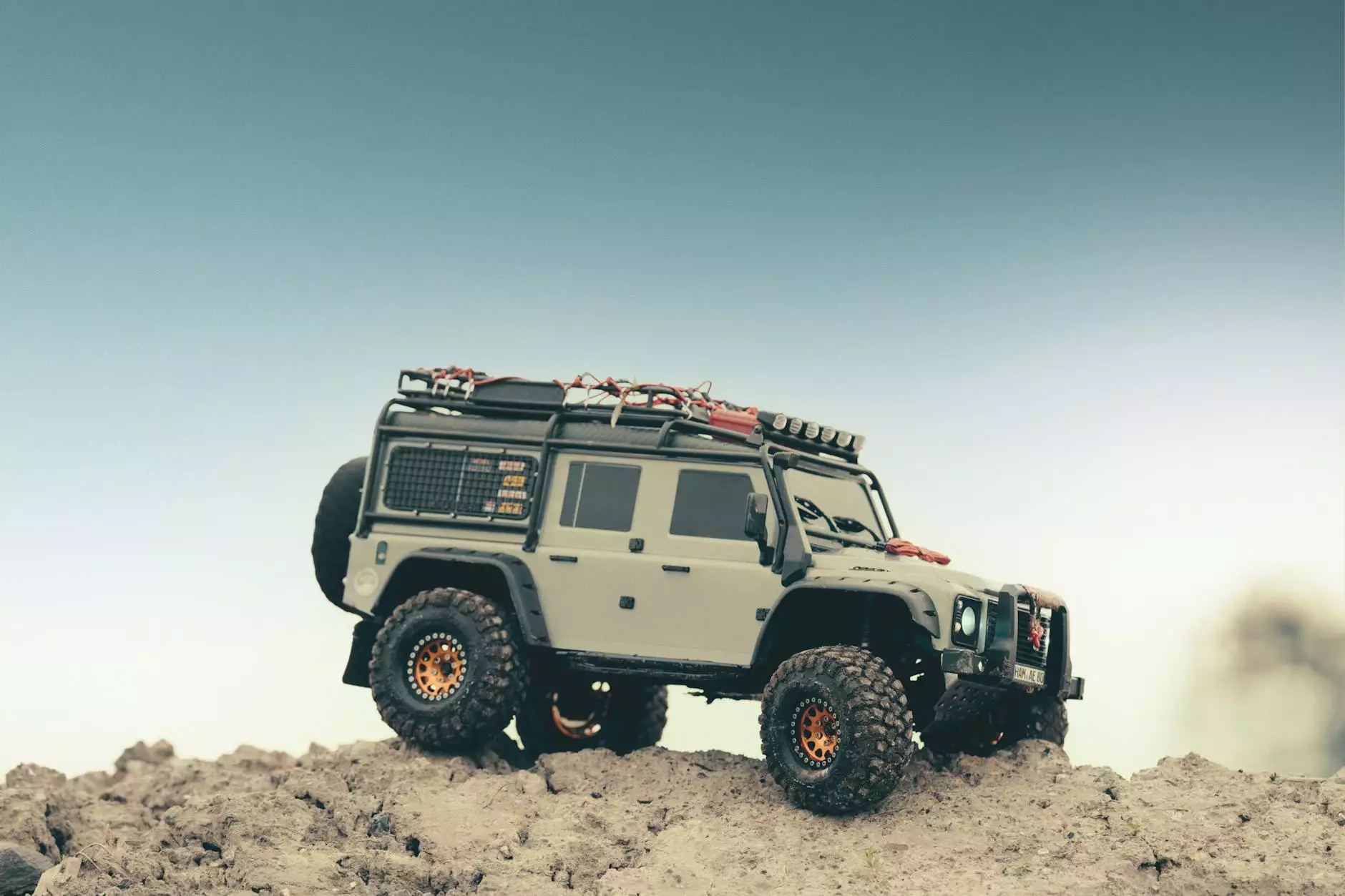The Ultimate Guide to Jeep Wheels and Tires

In the world of off-roading and adventure driving, Jeep wheels and tires play a pivotal role in determining your vehicle's performance, handling, and overall ride quality. As an enthusiast or owner, understanding the various options available, along with their maintenance needs, can dramatically enhance your driving experience. In this comprehensive guide, we will delve deep into the intricacies of selecting the right wheels and tires for your Jeep while providing you with all the essential information to keep them in top-notch condition.
Understanding Jeep Wheels and Tires
The right combination of wheels and tires not only influences the aesthetics of your Jeep but also affects its off-road capabilities, handling on rugged terrains, and safety on asphalt. Here’s what you need to know:
Types of Jeep Wheels
Choosing the right wheel is critical. Here are the most common types of Jeep wheels:
- Steel Wheels: These are durable and often less expensive. They can withstand rough use and are relatively easy to repair.
- Aluminum Wheels: Lightweight and designed for better performance, aluminum wheels offer improved fuel efficiency and better handling.
- Aftermarket Wheels: These provide numerous styles and sizes, allowing for custom looks and improved performance. They can be designed for specific tire sizes, contributing to better fitment and functionality.
Choosing the Right Tire for Your Jeep
When it comes to picking the right tire, you have several options. The type of tire largely depends on your intended use. Below are the various types:
- All-Terrain Tires: Versatile options ideal for both on-road and moderate off-road driving. They provide a good balance between traction and comfort.
- Mud-Terrain Tires: Specifically designed for off-roading and extreme mud conditions. They have deeper treads and wider voids for excellent grip.
- Highway Tires: Best suited for those who primarily drive on paved roads. They offer improved fuel efficiency and are quieter on highways.
Factors to Consider When Selecting Jeep Wheels and Tires
Choosing the right wheels and tires is not merely about aesthetics. There are various factors that need to be considered:
1. Tire Size
The size of the tire affects your Jeep’s performance and handling. When selecting tires, always refer to your Jeep’s manual for recommended sizes. The most common measurements include:
- Tire width (e.g., 31x10.50R15)
- Aspect ratio (the height of the tire as a percentage of its width)
- Rim diameter (the size of the wheel that the tire fits)
2. Load Rating
The load rating indicates how much weight a tire can safely carry. Ensure that the tires you choose can support the weight of your Jeep, especially when loaded with gear for off-road adventures.
3. Tread Design
The tread design directly impacts traction and performance. The tread should match your driving conditions:
- Closed Tread Patterns: Best for highway driving.
- Open Tread Patterns: Ideal for muddy, rocky conditions.
4. Seasonal Considerations
Depending on where you live, you might need different tires for different seasons. For instance, winter tires offer better grip in snow and icy conditions. Conversely, summer tires are optimized for warmth and provide better responsiveness on dry surfaces.
Maintaining Your Jeep Wheels and Tires
Proper maintenance of your Jeep wheels and tires ensures longevity and optimal performance. Here are key maintenance tips:
1. Regular Pressure Checks
Maintaining the correct tire pressure is crucial. Under-inflated tires can lead to decreased performance and increased wear, while over-inflated tires can contribute to blowouts. Use a reliable pressure gauge to check your tire pressure at least once a month.
2. Tire Rotation
Rotate your tires every 5,000 to 7,500 miles to promote even wear. This is particularly important for 4WD models where front and rear tires may wear at different rates.
3. Alignments and Balancing
Misaligned wheels can lead to uneven tire wear. If your Jeep pulls to one side or if you notice vibrations at high speeds, it may be time for a professional alignment or balance.
4. Inspect for Damage
Frequent inspections for cuts, punctures, or abnormalities on your wheels and tires can prevent serious issues. Address any signs of damage as soon as possible.
Upgrading Your Jeep Wheels and Tires
If you’re considering an upgrade, here's why you should:
Enhanced Performance
Upgrading to larger tires can improve ground clearance, allowing your Jeep to traverse tougher obstacles. Coupled with performance wheels, this can enhance stability and handling on various terrains.
Style and Customization
One of the most appealing aspects of upgrading is the aesthetic improvement. Custom wheels and unique tire designs can give your Jeep a personalized touch that stands out on the road.
Resale Value
Investing in quality wheels and tires can enhance the resale value of your Jeep. Enthusiasts are often willing to pay more for a Jeep that has been well equipped with performance-oriented wheels and tires.
Conclusion
Investing in the right Jeep wheels and tires is essential for any Jeep owner wanting to maximize their vehicle's performance and off-road capabilities. With proper selection, maintenance, and upgrading, you can enhance your driving experience significantly. Always remember that the right wheels and tires not only improve your Jeep’s functionality but also contribute to its look and resale value. For all your automotive needs, including wheels and tires for your Jeep, visit offroad-zone.com. Tailor your Jeep for adventure and stand out on any terrain!



